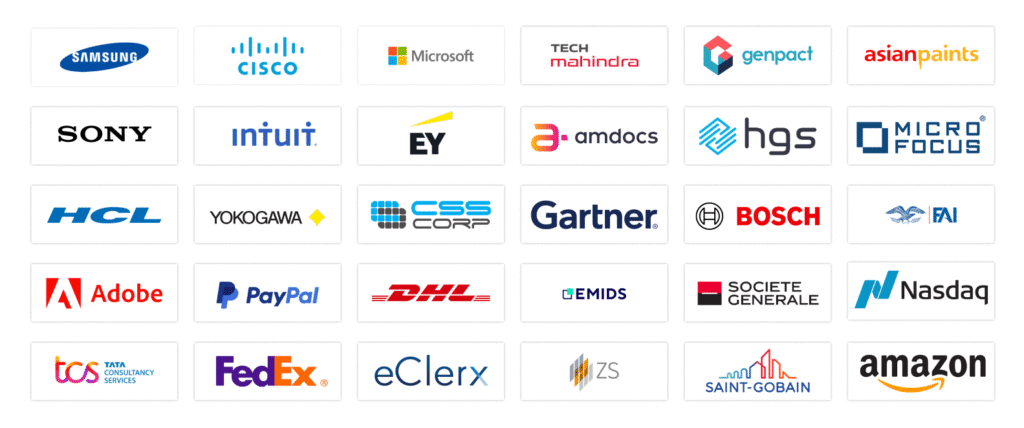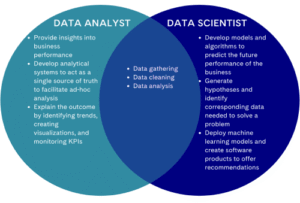If you’re fascinated by the world of tech and are...
Read MorePRINCE2® 7 Foundation & Practitioner Course
PRINCE2® 7 Foundation & Practitioner
This comprehensive package combines the PRINCE2® 7 Foundation and Practitioner courses, offering a complete pathway to becoming fully certified in the globally recognized PRINCE2 project management method.
- Delivery Partner
- GEL
- Accredited by
- PeopleCert
- Course duration: 30+ hours
- Exam vouchers included
- Free resit
PRINCE2® 7 Foundation & Practitioner Certification Training Overview
This comprehensive package combines the PRINCE2® 7 Foundation and Practitioner courses, offering a complete pathway to becoming fully certified in the globally recognized PRINCE2 project management method. PRINCE2 provides a structured, scalable, and adaptable approach to project management, distinguished by its rigorous focus on governance, risk management, and benefits realization. By incorporating agile concepts and prioritizing customization, the updated PRINCE2 is exceptionally responsive to the varying demands of diverse project environments.
Key Enhancements in PRINCE2® 7:
- Central Focus on People Management: Emphasizes the critical importance of human capital in driving project success.
- Enhanced Flexibility and Customization: Tailors to the specific needs of different projects across various industries.
- Embracing Digital and Data Management: Arms you with modern tools necessary for maintaining relevance in today’s digital landscape.
- Integration of Sustainability: Ensures projects are aligned with environmental and social responsibility objectives.
- Compatibility with Agile, Lean, and ITIL®: Improves overall project efficiency and outcomes.
This course is designed to be accessible to a wide range of professionals, from those aspiring to enter the field to experienced project managers seeking to update their skills. The content is delivered in simplified language to enhance understanding and application in real-world settings.
Next Webinar Starts on
- 00Days
- 00Hours
- 00Minutes
- 00Seconds
Who should take this PRINCE2® 7 Foundation & Practitioner
Certification Training?
-
Foundation Level Target Audience:
• Project Managers, both certified and uncertified.
• Individuals aspiring to become Project Managers.
• Anyone looking to enhance their project management skills and knowledge. -
Practitioner Level Target Audience:
• Specifically designed for both active and prospective Project Managers.
• Also highly relevant for other key roles involved in project execution, including:
* Project board members, such as senior responsible owners.
* Team managers, like product delivery managers.
* Project assurance professionals, including business change analysts.
* Project support staff, such as those in Project and Programme Office roles.
* Operational line managers and other staff engaged in project-related duties.
Know more about your Course
Foundation Course Content:
- Definitions and Characteristics of a Project: Understanding what constitutes a project.
- Identifying a PRINCE2 Project: Key attributes that define a project under the PRINCE2 methodology.
- Features and Benefits of PRINCE2: Exploring the unique advantages and core functionalities.
- Role of Project Management: Understanding the responsibilities and significance of project management within PRINCE2.
- Seven Aspects of Project Performance: Detailed examination of the elements crucial for project success.
- PRINCE2 Principles: Fundamental principles that guide the PRINCE2 approach.
- Integrated Elements of PRINCE2: Overview of the themes, processes, and tailoring involved in PRINCE2.
- Overview of PRINCE2 Processes: Comprehensive breakdown of each process within the PRINCE2 methodology.
- User/Supplier Context: Exploring the relationship and dynamics between users and suppliers.
- Applying and Tailoring PRINCE2: Techniques for adapting PRINCE2 to suit project needs and contexts.
Practitioner Course Content:
- Project Management Principles: Advanced strategies and principles for effective project management.
- Project Management Practices: Best practices in managing projects effectively within the PRINCE2 framework.
- Deep Dive into PRINCE2 Processes: Detailed exploration of PRINCE2 processes tailored for complex projects.
- People Management: Strategies for managing teams and stakeholders effectively.
- Project Management Roles and Responsibilities: Detailed roles and expectations for project management within PRINCE2.
- Project Performance Management: Techniques and tools for measuring and managing project performance.
- PRINCE2 is globally recognized as one of the leading project management methodologies, renowned for its structured and effective approach.
- GEL, an award-winning online training provider, offers this comprehensive PRINCE2 course.
- The course is designed to enhance learning outcomes with interactive knowledge checks and a practice exam simulator, supported by expert tutor guidance to prepare students for the PRINCE2 certification exams.
- Learners will benefit from engaging interactive slides, instructor-led videos, and a variety of other online training materials developed in collaboration with highly experienced PRINCE2 practitioners and subject matter experts.
- Each student is granted six months of access to the course materials and receives a FREE exam voucher (terms and conditions apply), facilitating their certification journey.
- This PRINCE2® Foundation and Practitioner course is accredited by PeopleCert.
CURRICULUM
PRINCE2® 7: Foundation
Module zero introduces you to the course main features, learning plan, aims and objectives, and structure. It also offers a diagram and tables pack, a glossary, and a course guide, which contains a syllabus, exam information, and some of the most frequently asked questions about PRINCE2 Foundation.
Module 1 defines key concepts related to project management, including the integrated elements of PRINCE2, the definition of a project and project management, the aspects of project performance to be managed, and the definition of delivery approaches. The module also explains the common reasons why project management is used, common challenges that PRINCE2 is designed to address, the characteristics of a project, the project environment, and the features and benefits of PRINCE2.
Module 2 describes the PRINCE2 principles: Ensure continued business justification, Learn from experience, Define roles, responsibilities and relationships, Manage by exception, Manage by stages, Focus on products, Tailor to suit the project. It also explains how and why the principles provide the basis of applying PRINCE2, which factors influence the way the PRINCE2 method can be tailored and applied, who’s responsible, and how tailoring decisions are documented.
Module 3 focuses on the people element of PRINCE2, defining key concepts and the difference between people within the project and people affected by the project, and between leadership and management. It also explains the purpose of the management products required to support the people element of projects, and how people aspects integrate with other PRINCE2 elements.
Module 4 provides an overview of the PRINCE2 practices. It also explains the purpose of PRINCE2 management products, including the project initiation documentation (PID) and project log.
Module 5 focuses on the business case practice. It starts by defining the key concepts related to the practice and explaining its purpose. It then provides guidance for effective management of the business case, including the business case lifecycle, aligning products to business objectives and tolerances, and establishing business justification. The module also describes the PRINCE2 technique for the business case practice, explains the purpose of the key management products required to support the practice, and describes the practice’s key relationships with the PRINCE2 principles.
Module 6 focuses on the organizing practice. It starts by defining the key concepts related to the practice and explaining its purpose. It then provides guidance for effective organizing of the three project interests, PRINCE2 roles, and work breakdown structure. The module also describes the PRINCE2 technique for the organizing practice, explains the purpose of the key management products required to support the practice, and describes the practice’s key relationships with the PRINCE2 principles.
Module 7 focuses on the plans practice. It starts by defining the key concepts related to the practice and explaining its purpose. It then provides guidance for effective management of plans, explaining the planning horizon, project stages, product-based planning, using tolerances to manage constraints, and delivery sustainability. The module also describes the PRINCE2 technique for the plans practice, explains the purpose of the key management products required to support the practice, and describes the practice’s key relationships with the PRINCE2 principles.
Module 8 focuses on the quality practice. It starts by defining the key concepts related to the practice and explaining its purpose. It then provides guidance for effective management of quality, covering user quality expectations, acceptance criteria, quality specifications, and requirements. The module also describes the PRINCE2 technique for the quality practice, explains the purpose of the key management products required to support the practice, and describes the practice’s key relationships with the PRINCE2 principles.
Module 9 focuses on the risk practice. It starts by defining the key concepts related to the practice and explaining its purpose. It then provides guidance for effective management of risk, covering risk planning, analysis, control and culture, along with decision bias, recommended risk response types, and use of data. The module also describes the PRINCE2 technique for the risk practice, explains the purpose of the key management products required to support the practice, and describes the practice’s key relationships with the PRINCE2 principles.
Module 10 focuses on the issues practice. It starts by defining the key concepts related to the practice and explaining its purpose. It then provides guidance for effective management of issues, covering baselines, issue resolution, change control, delegating authority for changes, and the change budget. The module also describes the PRINCE2 technique for the issues practice, explains the purpose of the key management products required to support the practice, and describes the practice’s key relationships with the PRINCE2 principles.
Module 11 focuses on the progress practice. It starts by defining the key concepts related to the practice and explaining its purpose. It then provides guidance for effective management of progress, covering tolerances for progress control, types of control reviewing and reporting progress and lessons, forecasting, escalating, and the use of data and systems in progress management. The module also describes the PRINCE2 technique for the progress practice, explains the purpose of the key management products required to support the practice, and describes the practice’s key relationships with the PRINCE2 principles.
Module 12 explains the purpose, objectives, and context of the PRINCE2 processes:
- Starting up a project
- Directing a project
- Initiating a project
- Controlling a stage
- Managing product delivery
- Managing a stage boundary
- Closing a project
Module 13 contains two practice tests provided by PeopleCert.
Module 14 provides information on booking the exam and other courses of interest.
PRINCE2® 7: Practitioner
Module zero introduces you to the course main features, learning plan, aims and objectives, and structure.
It also offers a diagram and tables pack, a glossary, and a course guide, which contains a syllabus, exam information, and some of the most frequently asked questions about PRINCE2 Practitioner.
Module 1 reviews the PRINCE2 Principles and presents a case study where learners can practice applying the principles to exam style questions.
Module 2 reviews the key concepts of people management in PRINCE2 Principles and presents a case study where learners can practice applying people management concepts to exam style questions.
Module 3 begins by reviewing the key concepts of the business case from Foundation. It then explores techniques that support the practice before looking at how to effectively apply the business case. It finishes by presenting a case study where learners can apply the business case practice to exam style questions.
Module 4 begins by reviewing the key concepts of the organizing practice from Foundation. It then explores techniques that support the practice before looking at how to effectively apply the organizing practice. It finishes by presenting a case study where learners can apply the organizing practice to exam style questions.
Module 5 begins by reviewing the key concepts of the plans practice from Foundation. It then explores techniques that support the practice before looking at how to effectively apply the plans practice. It finishes by presenting a case study where learners can apply the plans practice to exam style questions.
Module 6 begins by reviewing the key concepts of the quality practice from Foundation. It then explores techniques that support the practice before looking at how to effectively apply the quality practice. It finishes by presenting a case study where learners can apply the quality practice to exam style questions.
Module 7 begins by reviewing the key concepts of the risk practice from Foundation. It then explores techniques that support the practice before looking at how to effectively apply the risk practice. It finishes by presenting a case study where learners can apply the risk practice to exam style questions.
Module 8 begins by reviewing the key concepts of the issues practice from Foundation. It then explores techniques that support the practice before looking at how to effectively apply the issues practice. It finishes by presenting a case study where learners can apply the issues practice to exam style questions.
Module 9 begins by reviewing the key concepts of the progress practice from Foundation. It then explores techniques that support the practice before looking at how to effectively apply the progress practice. It finishes by presenting a case study where learners can apply the progress practice to exam style questions.
Module 10 begins by reviewing the key concepts of the starting up a project process from Foundation. It then explores how to effectively apply the process and the relationship between the process and the PRINCE2 practices. It finishes by presenting a case study where learners can apply the process to exam style questions.
Module 11 begins by reviewing the key concepts of the directing a project process from Foundation. It then explores how to effectively apply the process and the relationship between the process and the PRINCE2 practices. It finishes by presenting a case study where learners can apply the process to exam style questions.
Module 12 begins by reviewing the key concepts of the initiating a project process from Foundation. It then explores how to effectively apply the process and the relationship between the process and the PRINCE2 practices. It finishes by presenting a case study where learners can apply the process to exam style questions.
Module 13 begins by reviewing the key concepts of the controlling a stage process from Foundation. It then explores how to effectively apply the process and the relationship between the process and the PRINCE2 practices. It finishes by presenting a case study where learners can apply the process to exam style questions.
Module 14 begins by reviewing the key concepts of the managing product delivery process from Foundation. It then explores how to effectively apply the process and the relationship between the process and the PRINCE2 practices. It finishes by presenting a case study where learners can apply the process to exam style questions.
Module 15 begins by reviewing the key concepts of the managing a stage boundary process from Foundation. It then explores how to effectively apply the process and the relationship between the process and the PRINCE2 practices. It finishes by presenting a case study where learners can apply the process to exam style questions.
Module 16 begins by reviewing the key concepts of the closing a porject process from Foundation. It then explores how to effectively apply the process and the relationship between the process and the PRINCE2 practices. It finishes by presenting a case study where learners can apply the process to exam style questions.
Module 17 presents two practice exams, provided by PeopleCert.
Contact Us
+91-9289408096
Request more information
Not sure how to get started?
Exam Details
You can take the PRINCE2 Foundation and Practitioner exams online through PeopleCert, a globally recognized exam institute.
This course provides numerous mock exams to ensure you are well-prepared for the official test.
Before scheduling your exam, please confirm that your device meets the necessary technical requirements. Consult the PeopleCert website for more information.
Voucher requests are usually processed within 2 working days, though we ask you to allow up to 5 days. Remember to request your exam voucher during the access period for the course, which begins from your purchase date. For further details, refer to the GEL Support & FAQs page.
PRINCE2 7 Foundation Exam:
- Type: Multiple choice
- Number of questions: 60
- Duration: 60 minutes
- Format: Closed book
- Pass mark: 55%
PRINCE2 7 Practitioner Exam:
- Questions involve multiple marks and are scenario-based.
- Type: Multiple choice and matching questions
- Duration: 150 minutes
- Format: Open book (official PRINCE2 manual only)
- Pass mark: 60% (42 out of 70 marks)
Prerequisites for the PRINCE2 7 Practitioner Exam:
- PRINCE2 Foundation 7th edition
- OR PRINCE2 6th edition Foundation or Practitioner
What benefits does this course provide ?
Key Benefits :
- Enhanced Career Prospects
- Global Recognition
- Skill Enhancement
- Leadership Development
- Networking Opportunities
- Standardized Knowledge
- Comprehensive Understanding
- Aligns Business and IT
- Certification Longevity
Desire to be an PRINCE2® 7 Foundation & Practitioner Certified?
The CERTIFICATION PATH
YOUR JOURNEY
Learn
- Via Recorded Online Videos and Sessions
Practice
- Practical using activity guides
Get Exam-Ready
- Prepare yourself with Mock text and question papers.
You're Now Certified!
- Congratulations! now you're a PRINCE2® 7 Foundation & Practitioner Certified Professional.
Study
- Using Test Guides Designed by Experts
Build
- Practical Projects and a Sophisticated Portfolio
Take the Exam
- And succeed in it on your first try!
1: Learn
- Via Recorded Online Videos and Sessions
2: Study
- Using Test Guides Edited by Experts
3: Practice
- Practical using activity guides
4: Build
- Practical Projects and a Sophisticated Portfolio
5: Get Exam-Ready
- Using Solid Question Bank and Simulations
6: Take the Exam
- And succeed in it on your first try!
7: You're Now Certified!
- Congratulations! now you're a PRINCE2® 7 Foundation & Practitioner Certified Professional.
Self Paced
Learn with your own Pace
Solid Experiential Learning
- 30 Hrs of Self Paced Recoded Program
- Mock test Papers
- Learn As Per Your Flexibility & Convenience
- Interactive And Engaging Material
- 12 Months of Access to a Program Crafted by Industry Experts
- Exam fees included.
Training REVIEWS
Our Learners Love Us
Posted on
Partner and Copyright statements
. The PRINCE2® 7 Foundation & Practitioner course is provided by GEL, an ATO of PeopleCert. Certera Solutions promotes this course on behalf of GEL.
• PRINCE2® is a registered trademark of PeopleCert. Used under licence from PeopleCert. All rights reserved.
HAVE QUERIES, GET THE ANSWERS
Frequently Asked Questions
Request more information
PRINCE2 (Projects IN Controlled Environments) is a widely recognized project management methodology owned by PeopleCert. It is structured to provide project managers with the essential tools and insights needed to deliver projects efficiently within set timelines and budgets. Its comprehensive approach is designed to minimize risks while maximizing project outcomes.
PRINCE2 is built on a foundation of controlled stages, clear roles and responsibilities, and a business case that justifies the project throughout its lifecycle. Each project under PRINCE2 follows a systematic approach with predefined processes that guide the project from initiation through to closure, ensuring consistent oversight and alignment with the project objectives.
Holding a PRINCE2 certification is highly regarded in the project management industry. Salary surveys, such as those from Payscale, show that PRINCE2-certified professionals can expect to earn between $53,000 and over $217,000 annually, depending on their role, experience, and geographical location. This certification opens doors to advanced project management roles and increases job prospects significantly.
Organizations implementing PRINCE2 can expect enhanced project management efficiency, including:
- Better Cost Efficiency: PRINCE2’s focus on the business case ensures that all projects are aligned with the organization’s financial goals.
- Improved Risk Management: Through systematic processes, PRINCE2 helps identify potential risks early, allowing for effective mitigation strategies.
- Enhanced Stakeholder Engagement: Clear roles and responsibilities ensure everyone involved understands their tasks and contributions.
- Foundation Level: The PRINCE2 Foundation exam is an hour-long multiple-choice test consisting of 60 questions, with a pass mark of 55%. It is closed-book, testing a candidate’s understanding of the framework basics.
- Practitioner Level: After passing the Foundation exam, candidates can proceed to the PRINCE2 Practitioner exam. This is an open-book test lasting 150 minutes and comprising 68 questions, with a required pass mark of 60%. It tests the ability to apply PRINCE2 to real-world scenarios.
PRINCE2 is versatile, suitable for anyone involved in project management, regardless of industry sector. It benefits both new and experienced project managers by providing a rigorous, process-driven approach to project management that is replicable in various project environments.
The pathway starts with the PRINCE2 Foundation, progressing to the PRINCE2 Practitioner. For those interested in combining agile methodologies with traditional project management, the PRINCE2 Agile® tracks are available, which can complement or serve as an alternative pathway.
PRINCE2 works well alongside other management frameworks like MSP® (for programme management) and ITIL® 4 (for IT service management), offering a robust suite of governance across various organizational functions.
PRINCE2 qualifications are valid for three years, with the option to extend or reactivate by taking another PeopleCert-accredited exam.
Our Alumni Work in
Land Your Job In Top MNC's

Blog's
Comparing the Roles of Data Analysts and Data Scientists: An In-Depth Analysis
Two professions that are sometimes confused for each other, Data...
Read MoreTop Cybersecurity Interview Questions and Answers 2023
When partaking in a job interview, it’s crucial to bring...
Read MoreTop 10 Project Management Software in 2023
Project management is the organized process of planning, coordinating resources,...
Read MoreCertEraTrending Courses
Trending Courses
Popular Courses
Categories
The certification names and logo are the trademarks of their respective owners








